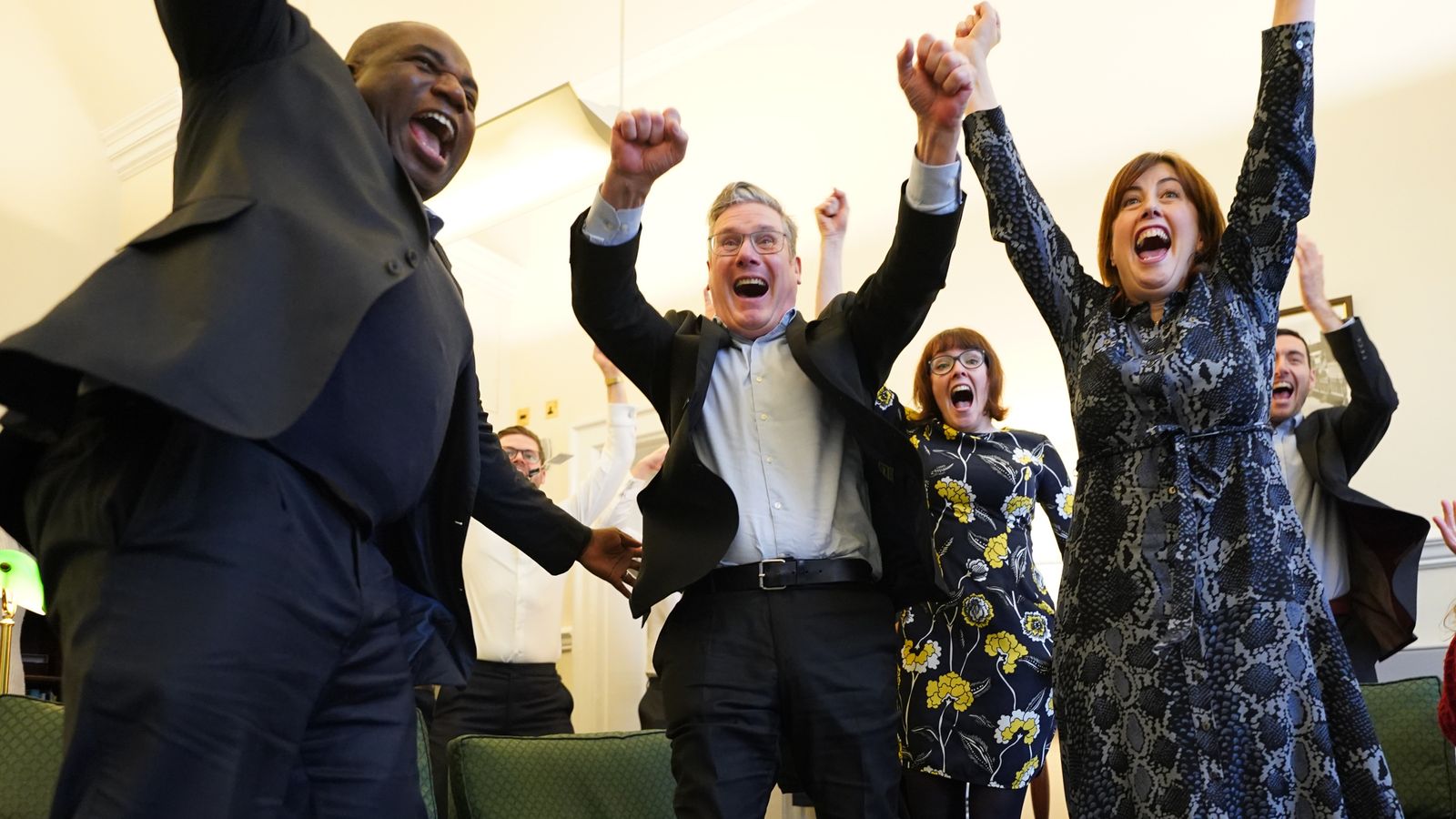Sir Keir Starmer will say that the British economy must be helped away from its “immigration dependency” in his keynote speech at the Confederation of British Industry’s (CBI) annual conference.
Speaking at the event on Tuesday, the Labour leader will say that the focus should be on “investing more in training up workers who are already here”.
The party say this means Labour will make the immigration system work better for the needs of business, but at the same time, business must have a plan to develop the skills of British workers.
It adds that the current system does not work and has led to delays in filling labour shortages and stagnant pay and poor conditions being commonplace in some sectors of the economy.
Politics latest: Sunak rules out closer alignment with EU
Sir Keir will also warn bosses that “the days when low pay and cheap labour are part of the British way on growth must end”.
The Labour leader will say that he wants the party to have a “new partnership” with business which will result in a “fairer, greener and more dynamic Britain” where “aspiration is rewarded”.
Keir Starmer says Corbyn’s Labour manifesto is ‘history’ – as he reveals he’s held talks with Blair and Brown about being PM
Prime Minister’s Questions: Rishi Sunak says it is ‘absolutely right’ Gavin Williamson resigned – and admits ‘regret’ over appointment
Keir Starmer says he has plan to stop people smugglers bringing people across the Channel
Sir Keir will add that a future Labour government under his leadership will be “pragmatic” on the basic shortage of people and will not ignore the need for skilled people to come into the country.
He will advocate a points-based immigration system that works for British workers and British businesses and not a return to freedom of movement.
“But I want to be clear here: with my Labour government any movement in our point-based migration system, whether via the skilled occupation route, or the shortage worker list, will come with new conditions for business,” Sir Keir is expected to say.
“We will expect you to bring forward a clear plan for higher skills and more training, for better pay and conditions, for investment in new technology.
“But our common goal must be to help the British economy off its immigration dependency. To start investing more in training up workers who are already here.
“Migration is part of our national story – always has been, always will be. And the Labour Party will never diminish the contribution it makes to the economy, to public services, to your businesses and our communities.
“But let me tell you – the days when low pay and cheap labour are part of the British way on growth must end.
“Now, I know most businesses get this. But when we look at our economy as a whole, it can seem like we’re more comfortable hiring people to work in low paid, insecure, sometimes exploitative contracts than we are investing in the new technology that delivers for workers, productivity and our country.
“And we can’t compete like that. Britain’s low pay model has to go. It doesn’t serve working people. It’s not compatible with grassroots growth.
“The three big priorities for my Labour government, the principles our partnership must deliver to drive Britain forward, are: one – economic stability, two – higher skills, three – green growth.
“I’ll put it simply: every business in this room has a strategy for growth. A nation needs one too.”
PM: ‘I believe in Brexit and know it can deliver’
On Monday, Rishi Sunak reiterated his commitment to Brexit in his speech at the CBI conference amid reports the government could be seeking a closer “Swiss-style” deal with the EU.
Please use Chrome browser for a more accessible video player
The prime minister said he was “unequivocal” that he would not return to any alignment with EU laws.
“I voted for Brexit, I believe in Brexit and I know that Brexit can deliver, and is already delivering enormous benefits and opportunities for the country,” he added.
Mr Sunak pointed to having “proper control of our borders” when it comes to migration as one benefit, adding: “We weren’t able to do that inside the European Union, at least now we are in control of it.”
But his remarks came shortly after the boss of the CBI, Tony Danker, called on the government to use immigration to solve worker shortages in the UK, saying it must be “practical” on the issue.
Brexit stopped many foreign workers being able to easily work in the UK and companies are struggling to recruit – especially in industries such as hospitality which has relied heavily on European staff in recent years.
Despite four quarterly falls this year, overall vacancies remain high at more than 1.2 million.
Mr Danker told the conference the UK’s labour shortages were “vast”, adding: “It’s time to be honest – we don’t have the people we need, nor do we have the productivity.”
However, Mr Sunak insisted the UK had “one of the world’s most attractive visa regimes for entrepreneurs and highly-skilled people”, adding: “The country’s number one priority right now when it comes to migration is tackling illegal migration.”
Please use Chrome browser for a more accessible video player
A report in the Sunday Times this weekend claimed some in government were looking at pursuing a new deal with the EU similar to that of Switzerland to try to improve economic ties – especially after recent market turmoil that has damaged the British economy and the ongoing issues with the Northern Ireland protocol.
That agreement sees the Swiss have selected access to the single market and removes checks on many goods, but means they are part of the Schengen common travel area and pay into the bloc’s coffers.
Number 10 has fiercely denied the option is on the table, with Housing Secretary Robert Jenrick telling Sky News the government was “going to stick with the relationship that we’ve secured”.
But, he added: “That doesn’t mean that we’re not interested in improving our trading relations with the European Union or indeed in my sphere, our security and migration partnership with the European Union.”




